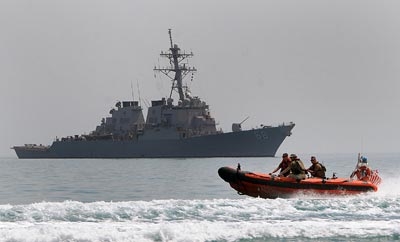The United States is to invest in new drug interdiction infrastructure in Honduras as authorities try to get a grip on the runaway drug trafficking that has helped turn Honduras into one of the world’s most violent and corrupt countries.
Plans include a new base of operations in Caratasca, in the jungle region of Mosquitia, which will be equipped with new speedboats and communications equipment, reported Proceso Honduras.
In Puerto Castilla in the department of Colon, authorities will construct a new dock for anti-narcotics boats, which will also be stocked with equipment for repairing damaged vessels.
Lastly, the new investments will see the construction of a center of operations for special forces on the island of Guanaja — one of the Bay Islands off Honduras’ Caribbean coast –, which will be equipped with speed boats, radar, and communications equipment.

InSight Crime Analysis
The areas selected for the new investments are all strategic points covering key drug trafficking routes.
Mosquitia is the site of numerous clandestine airstrips used for drug trafficking — a major issue in Honduras where, according to the US State Department, an estimated 79 percent of drug flights carrying US-bound cocaine stop. The region’s isolated and rugged coast line have also contributed to it becoming a popular transit point for shipments moved by go-fast boats.
The department of Colon is also prime drug trafficking real estate. The region is popular with traffickers using both planes and boats, and according to the Honduran authorities, Mexico’s Sinaloa Cartel and the Zetas have both established a presence there.
The island of Guanaja already has a naval base focused on anti-narcotics operations, which opened at the end of 2011. The island’s off-the-coast location allows US security forces to broaden their area of coverage in the Caribbean, which, as recently highlighted by US anti-drugs chief William Brownfield, is an increasingly popular route for drug traffickers.
However, the new investments do not offer a solution to one of the key reasons drug trafficking has grown exponentially in Honduras in recent years — a lack of capacity to monitor flights. Currently the US security forces operate a portable radar system to monitor flights, but this is moved around the Caribbean region, reported Proceso.
As Honduran military chief Rene Osorio said earlier this year, until the country has its own radar system covering the main flight routes, “Honduras is blindly stumbling around.”

